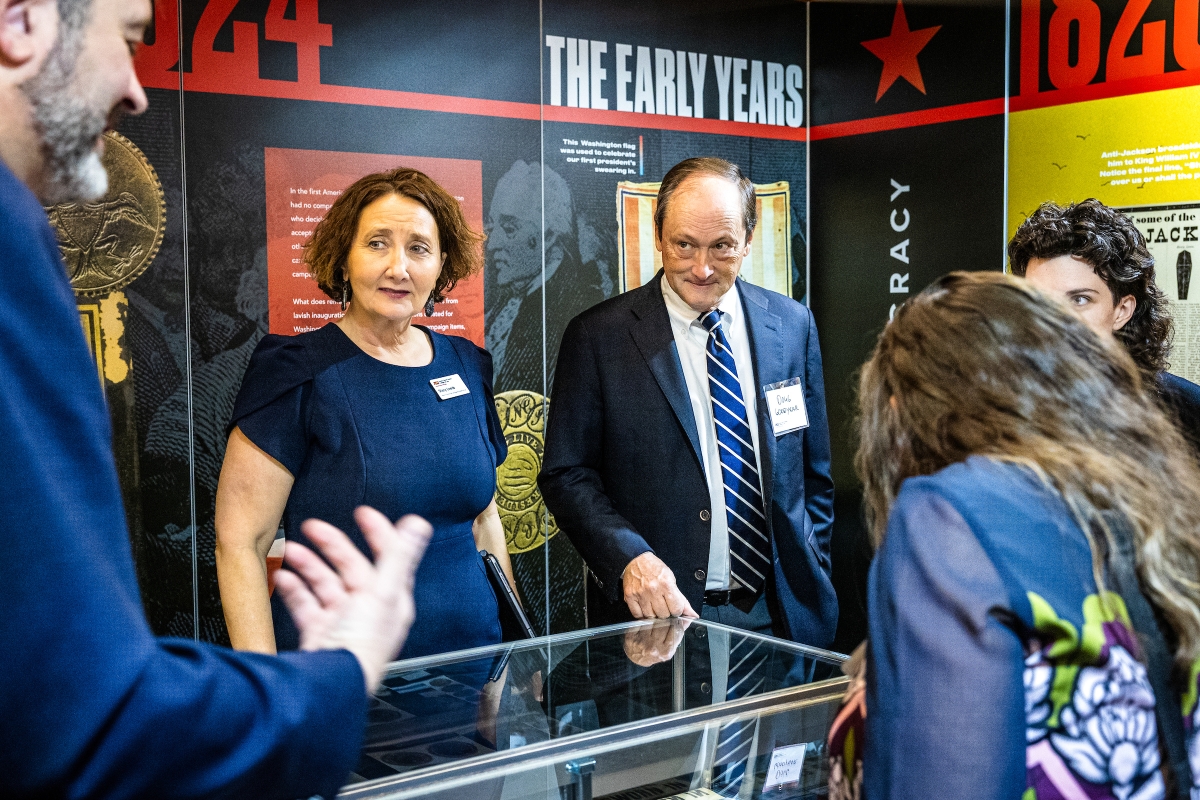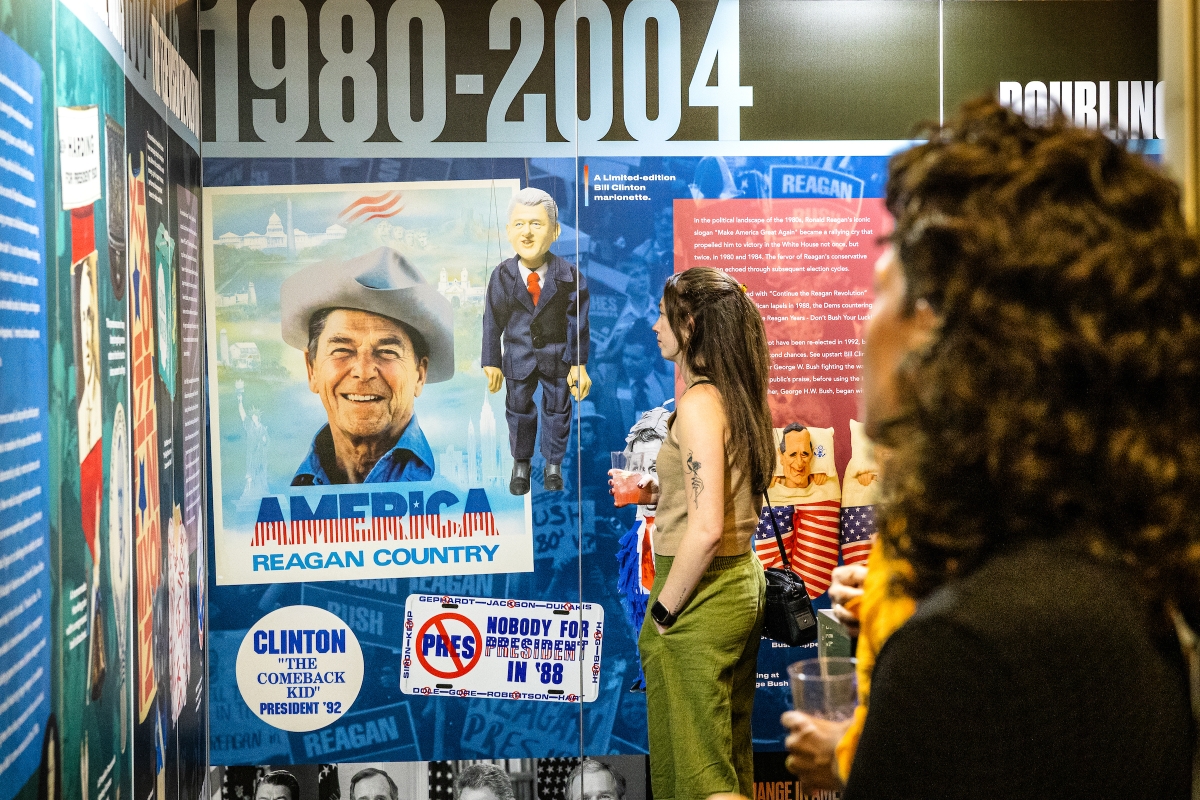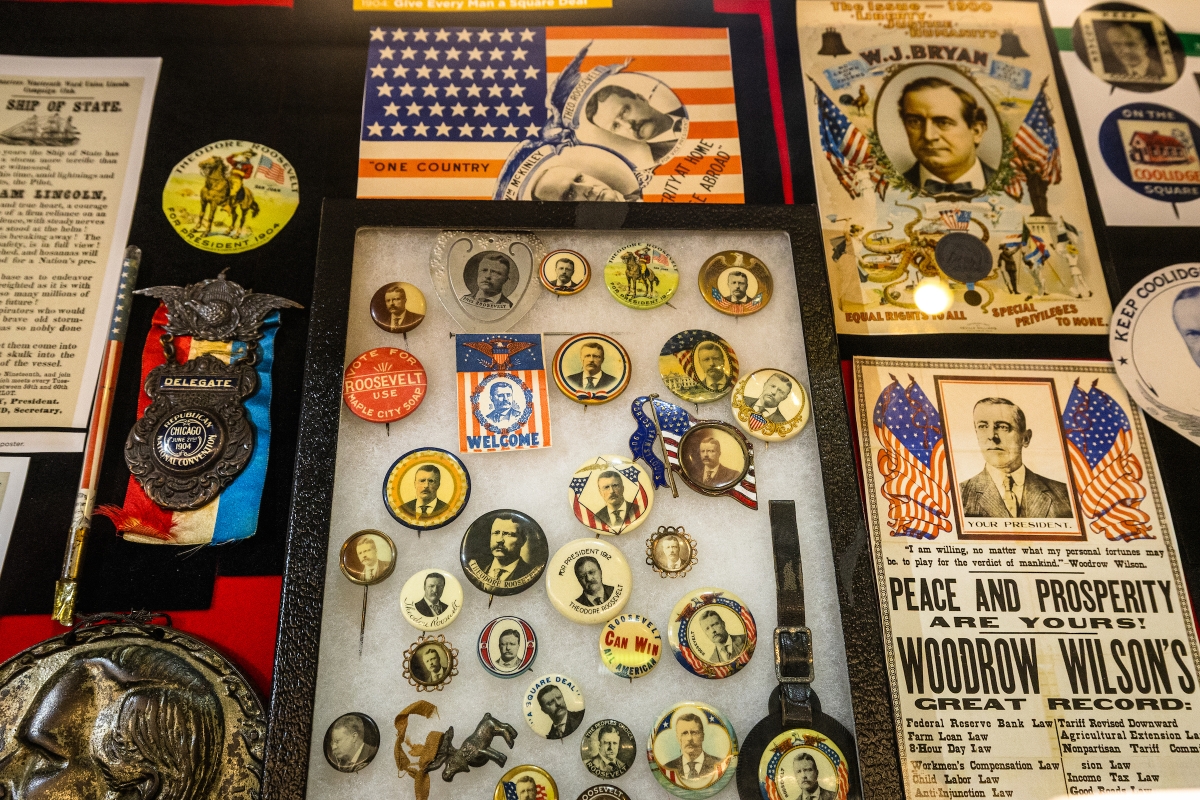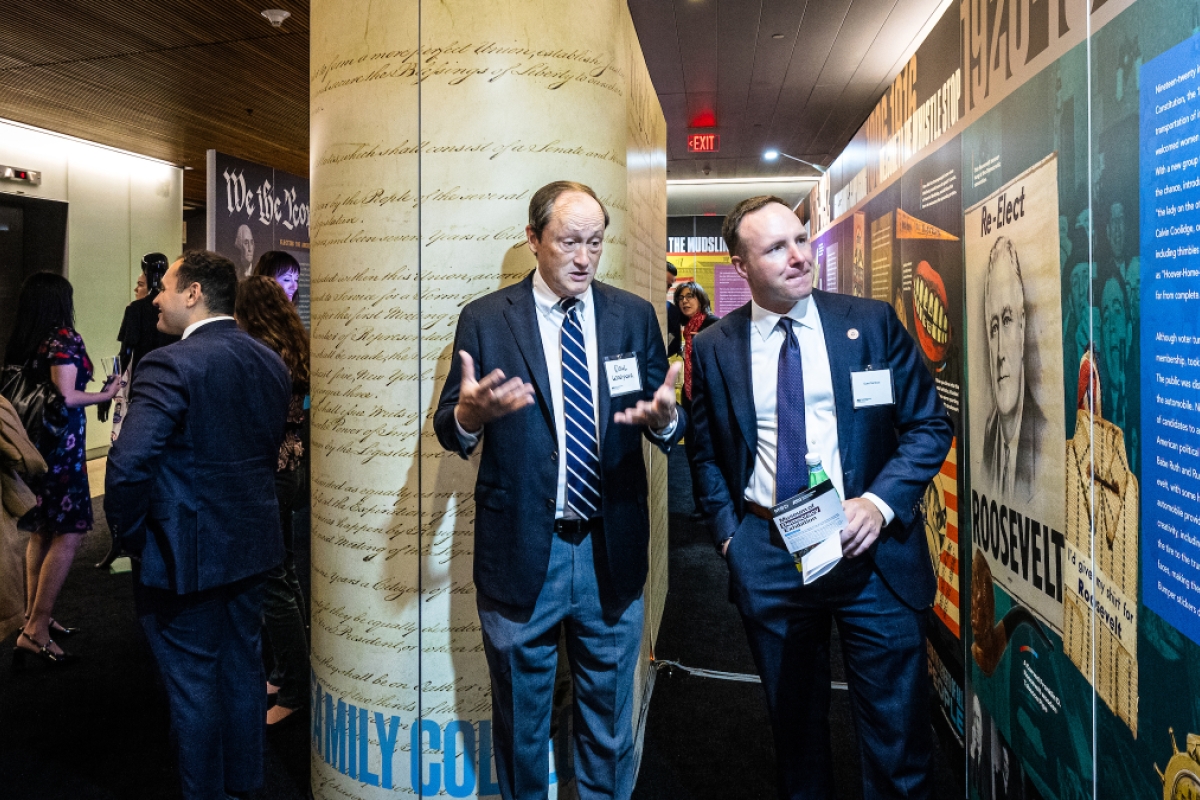Exhibit uses rare memorabilia to illustrate evolution of US presidential campaigns
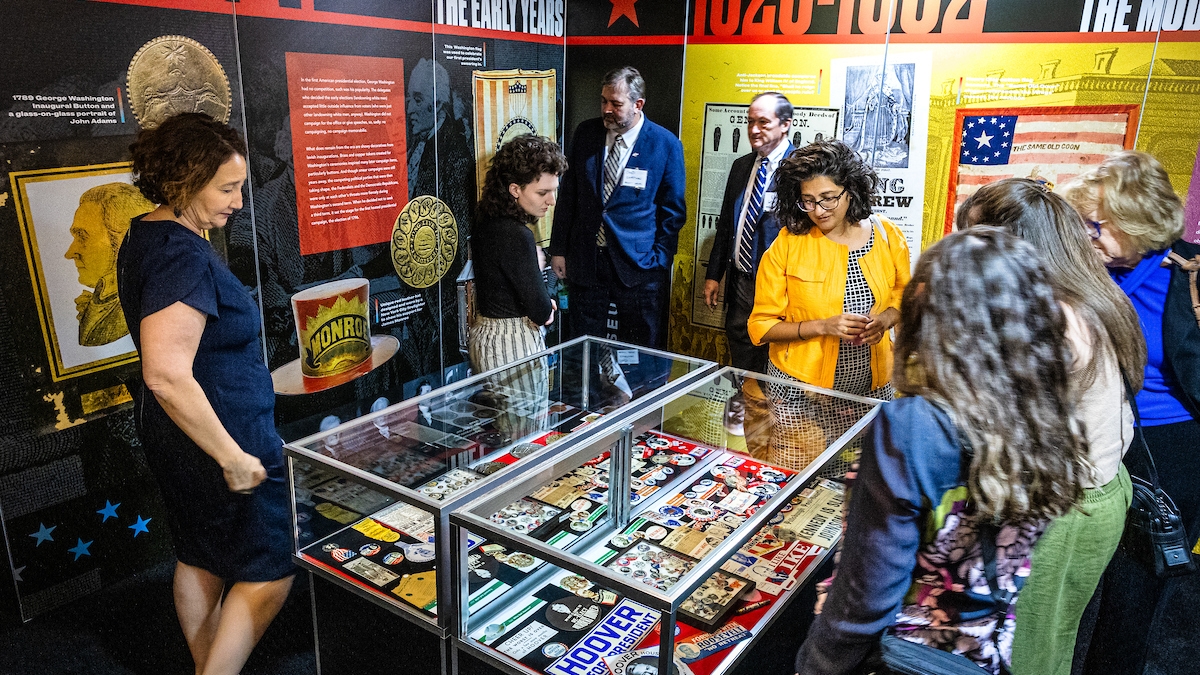
Guests look at some of the displays at the opening of the Museum of Democracy exhibit “We the People! Electing the American President” on Dec. 2 at the Sandra Day O’Connor College of Law in downtown Phoenix. The display features memorabilia dating back from George Washington’s 1789 inauguration through last month’s election. The exhibition is part of the Arizona Board of Regents’ Presidential Project. Each of the state’s three public universities will house exhibits from the Museum of Democracy collection at Long Island University, which are free to the public. Photo by Charlie Leight/ASU News
After one of the most contentious elections in history, a new museum exhibit offers a historical perspective on the centuries-old American process.
“We The People! Electing the American President” had its official opening on Dec. 2 at Arizona State University’s Downtown Phoenix campus.
The exhibit showcases the evolution of U.S. presidential campaigns through a collection of rare memorabilia, including the very first campaign buttons promoting George Washington’s inauguration in 1789.
“You’ve heard it said that citizenship is a quality of participation, not a skill to be learned but a muscle to be exercised,” said Arizona state Rep. Matt Gress, who attended the reception along with Arizona state representatives Deborah Nardozzi, Judy Schwiebert and Janeen Connolly, and Arizona state Sen. Priya Sundareshan.
“These exhibitions are gymnasiums to build our civic muscle. It is so important,” Gress said.
The free exhibit is a partnership between Arizona's three public state universities and the Museum of Democracy, which contains the nation’s largest private collection of political campaign memorabilia. The museum contains more than 1 million objects, gathered over four decades by the late Jordan Wright, a New York lawyer and magazine publisher.
The display is on view in the Sandra Day O’Connor College of Law’s Beus Center for Law and Society. To visit or schedule a tour contact Austin Prutch at Austin.Prutch@asu.edu.
The ASU exhibit contains several cases packed with campaign buttons surrounded by four constructed walls covered with photos of memorabilia from the Museum of Democracy, which is located at Long Island University in New York.
The photos feature campaign adornments such as top hats, dresses from the Kennedy-Nixon campaign and a wooden pipe with the bust of President Theodore Roosevelt carved into the bowl. They also show some of the more unique campaign items, like a Hillary Clinton nutcracker, a President George Bush pinata and a talking Trump pen.
The exhibit is educational and enlightening, showing that dissension and division is nothing new. Nor is name-calling and slogans.
For example, the exhibit teaches visitors that the notion of rigged elections goes back to President Andrew Jackson, who claimed that the election was stolen after losing to John Quincy Adams in 1824.
And President Donald Trump’s slogan “Make America Great Again” originated with President Ronald Reagan, who used the iconic pitch in his 1980 election campaign.
“Campaign claims that the country will be destroyed by the opposing candidate have been around for years,” Gress said.
The former public school teacher hopes the museum will serve as a resource for teaching civics to Arizona students.
“I think it reveals that our institutions endure, that campaigns come and go, and that candidates come and go,” Gress said. “But America lives on. We keep moving forward.”
Stacy Leeds, Willard H. Pedrick Dean of the Sandra Day O'Connor College of Law, talked about the school’s namesake, and said that the exhibit is a fit for the school's strategic priorities.
“After stepping away from the bench, (Sandray Day O'Connor) emphasized that each one of us play a critically important role in civics education for the general public,” Leeds said. “And we take that part of her mission to heart as well when we get the opportunity to host exhibits like the one we have here in the law school.”
The idea for the museum was presented to Gress in the Arizona Legislature’s 2023 budget cycle. In a bipartisan agreement, lawmakers approved $2 million to rotate three different exhibits from the museum to ASU, the University of Arizona and Northern Arizona University.
Currently, “You Say You Want A Revolution? Politics & Protests in the 60s” is on view at the University of Arizona campus store, and “Path to the American Presidency: Road to the White House” can be explored in the Cline Library at Northern Arizona University.
The partnership between the museum and the universities was made possible by a grant from the Arizona Board of Regents.
Regent Doug Goodyear talked about the general education standards adopted in Arizona that require university graduates to have a basic understanding of American civics and history.
“In a time like ours, with the explosion in technology and the expansion of knowledge that has occurred in recent years, the transfer of culture — including all of the cultural aspects related to democracy — it is getting increasingly more difficult and increasingly more urgent for us to defend democracy,” Goodyear said. “And our universities, I believe, are stepping up. Arizona has done a lot to lead the way.”
More Law, journalism and politics

ASU Law to honor Africa’s first elected female head of state with 2025 O’Connor Justice Prize
Nobel Peace Prize laureate Ellen Johnson Sirleaf, the first democratically elected female head of state in Africa, has been named the 10th recipient of the O’Connor Justice Prize.The award,…

Native Vote works to ensure the right to vote for Arizona's Native Americans
The Navajo Nation is in a remote area of northeastern Arizona, far away from the hustle of urban life. The 27,400-acre reservation is home to the Canyon de Chelly National Monument and…

New report documents Latinos’ critical roles in AI
According to a new report that traces the important role Latinos are playing in the growth of artificial intelligence technology across the country, Latinos are early adopters of AI.The 2024 Latino…
